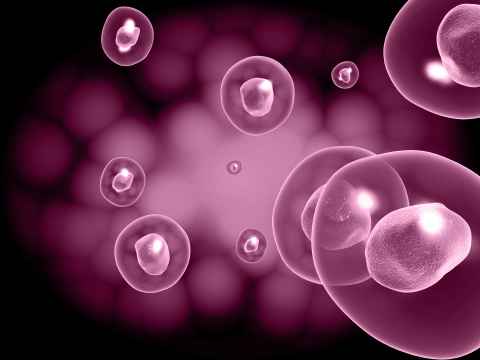
Stemaid™ only produces stem cells that are embryonic (pluripotent). This type of stem cell differs in many ways from the other stem cells that you may have encountered. The main stem cell types can be categorized as follows:
- Umbilical cord stem cells
- Adipose tissue stem cells
- Hematopoietic stem cells
- Fetal stem cells (FSC)
- Induced pluripotent stem cells (iPsc)
- Embryonic stem cells (ESC or hESC)
Umbilical cord stem cells
These are adult stem cells, which are sometimes referred to as mesenchymal stem cells (MSC) and are collected from the umbilical cord at birth. They are predetermined for certain functions. In the case of mesenchymal stem cells, their “mission” or genetically determined function is to repair skin, conjunctive tissues, muscle, and tendon damage. If the latter is of concern, umbilical cord stem cells may be an option.
Adipose tissue stem cells
Like umbilical cord stem cells, these are also mesenchymal stem cells. As they are harvested from the patient's body fat, they carry its DNA and therefore will not be rejected. In contrast, umbilical cord stem cells are rejected after a few hours. Although adipose tissue stem cells are more efficient than umbilical cord stem cells, they share similar limitations. In fact, they are limited to their predetermined application, which is mainly in healing skin, tendons, and conjunctive tissues. It is important to note that once harvested via liposuction, the number of mesenchymal stem cells available in the future from fat will be reduced. Additionally, these stem cells are the same age as your other cells. All adult stem cells age at the same pace as their host. Thus, adipose stem cells will not help with the in-depth rejuvenation of the body. They will only repair the wear and tear of conjunctive tissues, as their predetermined function allows.
Hematopoietic stem cells
These cells, harvested from patients' bone marrow are predetermined to help with all blood related issues, including blood vessels and the immune system. Thus, they may facilitate healing of blood-related conditions.
Fetal stem cells (FSC)
These stem cells are extracted from a 6 week-old aborted fetus. They carry a variety of adult stem cells. From our research, several cases have been reported in which patients had developed tumors after spinal treatment with fetal stem cells. We strongly caution anyone who is considering using this type of stem cells.
Induced pluripotent stem cells (iPsc)
Induced Pluripotent Stem Cells are prepared by introducing foreign genes into adult cells. These cells behave like embryonic stem cells and are theoretically able to stimulate repair in the entire body. However, they are not considered fully embryonic due to their foreign genes and this limits their range of application. Viruses are currently used to induce the reprogramming of adult cells, and this process must be carefully tested before they can lead to safe and effective treatment in humans because, in animal studies, the virus used may sometimes cause cancers.
Embryonic stem cells (ESC)
Embryonic stem cells (ESC) are derived from a blastocyst (either donated or cloned from a skin-cell), which is an early-stage embryo (5 days old) of 100-200 cells that are barely visible to the naked eye. At this stage, these cells are not yet predetermined or specialized in any way, so there are no organs or even a single blood cell, just an “inner cell mass” from which embryonic stem cells can be obtained. Unlike Adult stem cells, which are limited to differentiating into different cell types of their tissue of origin, ESC are pluripotent and can express the DNA of all the cell-types of the body.
When introduced into the bloodstream, these pluripotent cells operate by way of signaling and within minutes their molecules (microRNAs) signal every organ of the body to rejuvenate and repair. For example, the brain will start to release neural stem cells, which are the stem cells that can repair the brain, the heart will release cardiac stem cells, the lungs, pulmonary stem cells, and the skin, mesenchymal stem cells, and so on. The wide range of applications of embryonic stem cells is what makes them so well suited to treating numerous conditions. Once signaling has taken place, the body naturally eliminates the ESC within 72 hours, while the newly created stem cells in the various parts of the body continue to do their repair work for up to 3 months. Unlike the other stem cell types mentioned above, embryonic stem cells also have the added advantage of producing a protein that has anti-tumor properties.
Embryonic stem cells (ESC) are the only type of stem cells that Stemaid™ offers.

